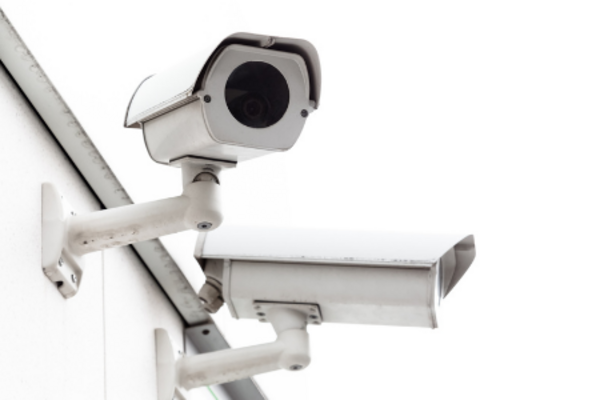The Home Office have announced that they are implementing new GPS technology for the electronic monitoring of people on immigration bail. Their most recent bail policy (V.7 January 2021) states that they “historically used an electronic monitoring device known as a ‘radio frequency tag’ (RFT is an EM device which uses radio frequency technology) but is transitioning to the use of a Global Positioning System (GPS) device (an EM device which uses GPS technology).[1]” The Home Office says it will be publishing new criteria for EM using GPS later in the year yet BID is aware that they are proceeding to move people over to GPS since January 2021.
RFT and GPS differ in that the former is used to ensure a person is where they should be at a given time (i.e., in their residence during a curfew) whereas the latter provides 24/7 real time location monitoring, tracking an individual’s every move.
Why are we concerned
The purpose of Electronic Monitoring is to enable the Home Office to maintain appropriate levels of contact with the individual, reduce the risk of non-compliance, including absconding and minimise potential delay in the Home Office becoming aware of any non- compliance.
The Home Office is using the transition to GPS as a trojan horse to substantially extend its powers of surveillance and to use the data for other inappropriate purposes , including to undermine an individual’s immigration case by using to data when considering their Article 8 claims about their family or private life in the UK. GPS will enable the Home Office to amass huge amounts of personal data without proper safeguards in place to ensure that it is not abused in circumstances where non-compliance risks further criminalising people subject to immigration control. Simultaneously the Home Office plans to increase the number of people it surveys.
Immigration bail is an administrative tool for contact management of people liable to be detained. It is not intended and should not be used to coerce or punish. Bail conditions must be proportionate to be lawful. Electronic monitoring of any kind amounts to a significant intrusion on privacy and has the potential to impose considerable restrictions on liberty. The escalation of that intrusion from RTG to the oppressiveness of GPS cannot be overstated. It has been accepted by the Supreme Court that curfews (which are part and parcel of electronic monitoring conditions) amount to a form of detention[2]. It is experienced as a continuation of punishment and the psychological harm caused by electronic monitoring is well-documented – tag-wearers report that tags have an impact on almost every area of life including the ability to participate in society; relationships; financial and emotional stress; sleep; feelings of dehumanisation and stigma.[3]
People involved in a Ministry of Justice GPS Electronic Monitoring Pilot[4] described a feeling of being ‘constantly watched’ by the authorities. The Ministry of Justice recognised that GPS monitoring is an infringement on Article 8 rights[5], and that ankle tags are likely to cause feelings of anxiety and stigma to the wearer[6].
How will the data be used?
GPS monitoring will track the location of the wearer 24/7 and store that data. The Home Office states that “trail data” will be held by the EM contractor (Capita) but may be accessed by the Home Office under certain circumstances including where there is a breach of bail conditions, where law enforcement agencies have made a request for the data and “where it may be relevant to a claim by the individual under Article 8 ECHR[7]”.
Article 8 claims can be very broad and involve a lot of personal and private details about an individual’s life. Presently there is no clear limit on the circumstances in which location data might be deemed by the Home Office to be relevant to an Article 8 claim. This could mean that whenever an individual makes an Article 8 claim the Home Office would have the right to access all their ‘trail data’ on the grounds that it ‘may be relevant’. This provision gives unlimited discretion to Home Office decision-makers to retrospectively access location data for purposes over and above monitoring compliance with bail conditions. The Home Office is not a neutral third party and they have a vested interest in proceedings which could have negative repercussions on an individual’s substantive case.
This can be contrasted with the use of electronic monitoring in the criminal justice system, where electronic monitoring data must only be “processed for specified, explicit and legitimate purposes”[8].
Those subject to immigration bail will be much more vulnerable to data being used against them. In criminal cases, the burden falls on the Crown to prove an allegation to the criminal standard (beyond reasonable doubt) whereas in immigration cases, the Appellant/Applicant carries the burden to the civil standard (on a balance of probabilities). When an allegation is made against an Appellant/Applicant in immigration proceedings, the decision maker need only decide whether it is more likely than not that it is proved. This risks findings of fact being made on a very tenuous and unsafe basis to the disadvantage of Appellants/Applicants.
What are the consequences of a breach?
The consequences of a breach could not be more serious. A Home Office ‘notification of variation to bail conditions’ given to a client who was being transitioned from radio frequency monitoring to GPS monitoring stated the following:
“Failure to comply with any of the above conditions may lead to arrest, your conditions being varied, the requirement to pay money under any financial condition, and/or your detention.
“Failure to comply with any of the above conditions, without reasonable excuse, is also a criminal offence which may be punished by a fine or a prison sentence.”
It is not clear what severity of breach would lead to immigration detention or criminal charges. We are concerned that this risks further criminalising people simply because they are subject to immigration control.
Who will be subject to GPS monitoring?
The government informed us in response to our FOI request that “The criteria for the application of Electronic Monitoring will change upon commencement of the duty later this year and more information will be available then”, further stating that:
“As set out in the Immigration Bail Policy, the use of Electronic Monitoring must be considered in all instances where the person who is being considered for release on immigration bail is subject to deportation proceedings.”
They further state:
“We are preparing a Statutory Instrument to enable commencement of the duty under paragraph 2(3) of Schedule 10 to the 2016 Immigration Act later this year, mandating the application of satellite tracking when an individual who is liable to detention pending deportation meets certain conditions/criteria.[9]”
Implementation of paragraph 2(3) of Schedule 10 would mean mandatory electronic monitoring for all people facing deportation, except where that would be impractical or contrary to an individual’s Convention rights. At the end of March 2020 there were 194 people on immigration bail subject to an electronic monitoring condition[10]. There are 9,987 people facing deportation living in the community[11] – meaning that an additional 9,793 people could become subject to electronic monitoring. This increase in the number of people surveyed is particularly concerning given the sophistication of the technology and the way the government intends to use the data.
The Home Office has failed to show why it is necessary to impose such a strict and intrusive form of monitoring for those on immigration bail. BID has seen no evidence that is it more effective in achieving compliance with bail than the RTF in place. BID is unaware of any assessments that have been done on the impact this shift to GPS may have on those with protected characteristics under the Equality Act 2010, particularly those with mental health disabilities. There is no acknowledgement in the policy that GPS monitoring is more invasive and that its use will be circumscribed as a result, nor is their information on whether the data will be available to the person being monitored, and at what point and how it can be accessed.
In the criminal justice system, 24/7 GPS monitoring (what the Ministry of Justice calls ‘trail monitoring’) is highly regulated and can only be used as part of a community orders or suspended sentence orders[12]. It is not allowed to be imposed as part of criminal bail conditions and sentences involving Electronic Monitoring are determinate. In immigration cases, where people can be on bail for months if not years, there appears to be no upper time limit or clear guidelines around how long an individual will be monitored for[13]. Further the conditions can be imposed without any judicial oversight by way of SSHD bail. We believe that the same protections given to people on criminal bail should be afforded to those on immigration bail subject to electronic monitor using GPS.
In summary BID are concerned that the transition to GPS is being used opportunistically by the Home Office to extend its surveillance of people on immigration bail subject to EM to their detriment and for purposes beyond what was originally intended.
[1] Page 21 Home Office bail policy (policy has since been updated in January 2021) https://assets.publishing.service.gov.uk/government/uploads/system/uploads/attachment_data/file/952910/immigration-bail-v7.0-gov-uk.pdf
[2] The Queen (on the application of Jalloh) v Secretary of State for Home Department [2020] UKSC 4, 12 February 2020, where the Supreme Court found that unlawful curfews of this nature amounted to false imprisonment.
[3] See Bhatia, Monish “Racial surveillance and the mental health impacts of electronic monitoring on migrants”
[4] Process evaluation of the Global Positioning System (GPS) Electronic Monitoring Pilot Qualitative findings, Ministry of Justice Analytical Series 2019 https://assets.publishing.service.gov.uk/government/uploads/system/uploads/attachment_data/file/779199/gps-location-monitoring-pilot-process-evaluation.pdf
[5]“It is recognised that the processing of personal data engages Article 8 of the European Convention on Human Rights i.e. the right to respect for private and family life” (Page 3, Code of Practice: Electronic Monitoring, Electronic Monitoring Directorate, October 2020
https://assets.publishing.service.gov.uk/government/uploads/system/uploads/attachment_data/file/926813/em-revised-code-practice.pdf )
[6] Page 46 Process evaluation of the Global Positioning System (GPS) Electronic Monitoring Pilot Qualitative findings, Ministry of Justice Analytical Series 2019 https://assets.publishing.service.gov.uk/government/uploads/system/uploads/attachment_data/file/779199/gps-location-monitoring-pilot-process-evaluation.pdf
[7] Page 23, Home Office bail policy https://assets.publishing.service.gov.uk/government/uploads/system/uploads/attachment_data/file/952910/immigration-bail-v7.0-gov-uk.pdf
[8] Code of Practice: Electronic Monitoring, Electronic Monitoring Directorate, October 2020 https://assets.publishing.service.gov.uk/government/uploads/system/uploads/attachment_data/file/926813/em-revised-code-practice.pdf [9] FOI response received 8th February 2020
[10] Ministry of Justice data Electronic monitoring caseload https://data.justice.gov.uk/contracts/electronic-monitoring
[11] Figure true for the end of September, the most recent data available. Immigration Enforcement data: November 2020 https://www.gov.uk/government/publications/immigration-enforcement-data-november-2020
[12] In criminal bail conditions, GPS monitoring can only be used to enforce exclusion or inclusion zones, but it cannot be used for ‘trail monitoring’.
[13] Page 21, Bhatia, M (2021, January 26). Race surveillance and the mental health impact of electronic monitoring on migrants, Race & Class https://journals.sagepub.com/doi/abs/10.1177/0306396820963485?journalCode=racb









